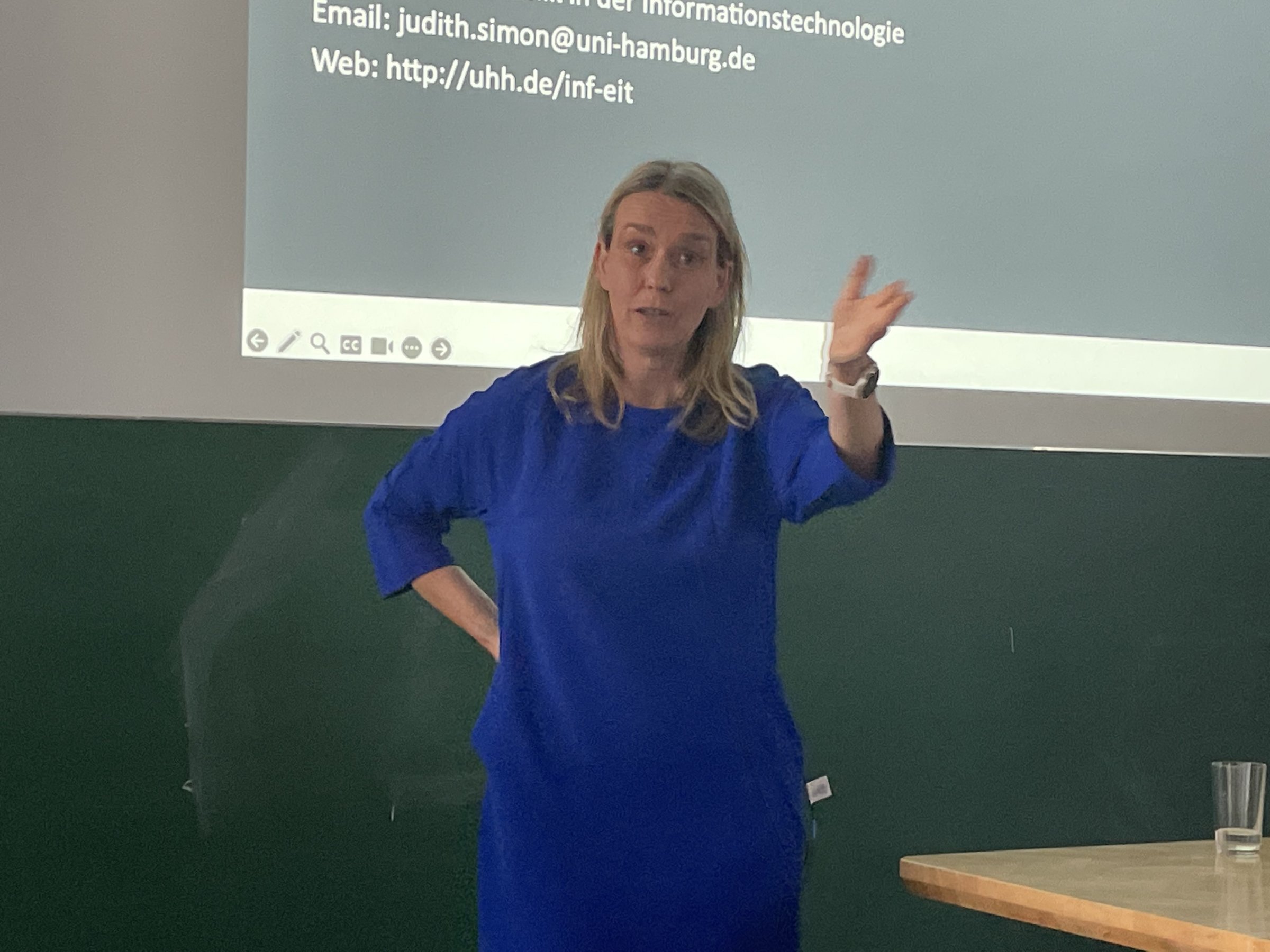May 24, 2024
Can we trust AI?
Lively FIAS Forum with IT ethicist Judith Simon
Can we trust AI - and where are the pitfalls? The first German professor of ethics in information technology, Judith Simon (Hamburg University), addressed these complicated questions in the FIAS Forum public lecture series.
‘Who uses AI?’ asked Judith Simon into the well-filled audience - to immediately convince the hesitant listeners that we can't avoid it, for example with finger and face recognition on mobile phones or online route planners. But can we trust this technology? After all, it is already having a significant impact on our data: just five likes on Facebook lead to 93% correct gender and 95% ethnic categorisation.
‘Statistical predictions are increasingly determining our lives,’ says Simon. But AI generates its information from old data. For example, white men used to be more likely to be in higher-level jobs, meaning that recruitment software may continue to favour them as ‘more suitable’ in the future.
Generative AI such as ChatGPT also simulates ‘humanity’ and is increasingly difficult to distinguish, as also examples in the subsequent discussion showed.
‘We only trust AI if we trust the designers behind it,’ said Simon. ‘I don't think we will should use it in areas where we have to justify its use’ - for example in court judgements, which have to be based on evidence and facts, not probabilities.
‘Trustworthiness is only approximate,’ she concluded. And the speed of developments is so high that acute threats are very real, for example in elections or with scientific misinformation. She cited an example of this speed from her work on the Ethics Council, which was itself overwhelmed by the publication of ChatGPT and its furious use everywhere.
The lively and thought-provoking discussion that followed the lively presentation continued over pretzels and wine on the wonderful FIAS roof terrace with its 360° view of the skyline and Taunus mountains.
